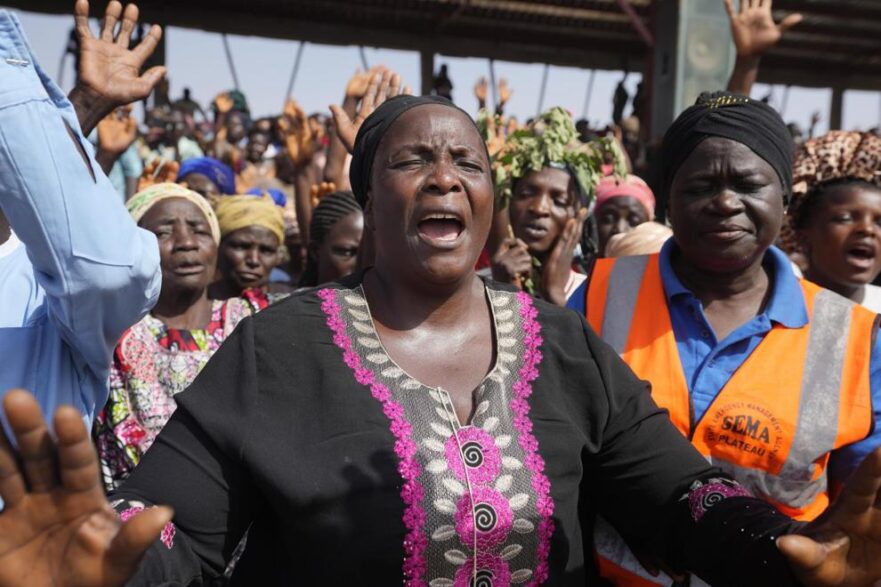Ken Camp / Managing Editor, Baptist Standard
In spite of a Christmas Eve massacre of about 200 Nigerians in predominantly Christian areas and evidence of India’s growing transnational repression of religious minorities, neither nation was designated as a Country of Particular Concern by the U.S. Department of State or placed on its Special Watch List.
In response to the omissions, the U.S. Commission on International Religious Freedom called for a congressional hearing, noting the State Department’s own reported evidence of religious freedom violations in both countries.
U.S. Secretary of State Antony Blinken announced Jan. 4 the State Department redesignated a dozen nations as Countries of Particular Concern—a category reserved for nations that engage in or tolerate “systemic, ongoing and egregious violations” of religious freedom.
The State Department-designated CPCs are Burma (also known as Myanmar), China, Cuba, Eritrea, Iran, Nicaragua, North Korea, Pakistan, Russia, Saudi Arabia, Tajikistan and Turkmenistan.

“There is no justification as to why the State Department did not designate Nigeria or India as a Country of Particular Concern, despite its own reporting and statements. USCIRF calls on Congress to convene a public hearing on the failure of the State Department to follow our recommendations,” U.S. Commission on International Religious Freedom Chair Abraham Cooper and Vice Chair Frederick A. Davie said in a joint statement.
The USCIRF in its 2023 annual report recommended all 12 countries be redesignated as CPCs without any waivers on sanctions and also recommended the CPC designation for India, Nigeria, Afghanistan, Syria and Vietnam.
“We met with the State Department on many occasions to sound the alarm about these countries, but not all of our recommendations have been followed. We will not be deterred and will continue our role as a congressionally mandated watchdog to ensure the U.S. government prioritizes religious freedom as a key component of U.S. foreign policy.”.
Cooper and Davie pointed to the Christmas Eve attacks on Christians as “just the latest example of deadly violence against religious communities in Nigeria that even the State Department has condemned.”
In regard to India, they noted not only “egregious religious freedom violations” and religious violence internally, but also increased transnational repression targeting religious minorities.
Others echo concerns about omissions
21Wilberforce, a human rights organization focused on religious freedom, echoed the concerns raised by the bipartisan commission.
“21Wilberiforce joins the chorus of those in government and civil society who are very disappointed that Nigeria and India are missing from the State Department’s latest religious freedom violations country list. Both countries clearly meet the legal standards for designation as CPCs,” said Lou Ann Sabatier, spokesperson for 21Wilberforce.
“Violence and atrocities in Nigeria continue to rapidly increase with the most recent incident reported two weeks ago on Christmas Eve. And growing incitement of religious violence against religious minorities in India, whose government turns a blind eye, is deeply troubling.”
ADF International, the global arm of Alliance Defending Freedom, particularly condemned the Biden administration for failing to acknowledge “egregious violations of religious freedom” in Nigeria and urged congressional action.
“The United States should increase pressure on Nigeria for the blatant violations of religious freedom occurring in the country. More Christians are being killed in Nigeria for their faith than in all other countries combined,” said Sean Nelson, legal counsel on global religious freedom for ADF International.
“The U.S. government should do everything within its power to support ending the persecution and bringing about the peaceful coexistence of faith communities in Nigeria. Since it is clear that the State Department will not take significant action over the terrible religious freedom conditions in Nigeria, it is vital that Congress makes its voice heard.”
In addition to the CPC designations, the State Department placed Algeria, Azerbaijan, the Central African Republic, Comoros and Vietnam on its Special Watch List—a second-tier designation for countries where there is evidence of religious freedom violations.
Contrary to USCIRF recommendations, the State Department issued waivers on sanctions for Pakistan, Saudi Arabia, Tajikstan and Turkmenistan.
“USCIRF formally requests a detailed justification by the State Department as to why our policy recommendations were not fully implemented, including the waivers,” Cooper and Davie stated.
Blinken acknowledged “significant violations of religious freedom also occur in countries that are not designated,” but he did not cite specific nations.
“Governments must end abuses such as attacks on members of religious minority communities and their places of worship, communal violence and lengthy imprisonment for peaceful expression, transnational repression, and calls to violence against religious communities, among other violations that occur in too many places around the world,” Blinken said.
“The challenges to religious freedom across the globe are structural, systemic, and deeply entrenched. But with thoughtful, sustained commitment from those who are unwilling to accept hatred, intolerance and persecution as the status quo, we will one day see a world where all people live with dignity and equality.”
Blinken also announced the State Department named al-Shabab, Boko Haram, Hayat Tahrir al-Sham, the Houthis, ISIS-Sahel, ISIS-West Africa, al-Qa’ida affiliate Jamaat Nasr al-Islam wal-Muslimin, and the Taliban as Entities of Particular Concern.
Reprinted with permission from Baptiststandard.com

